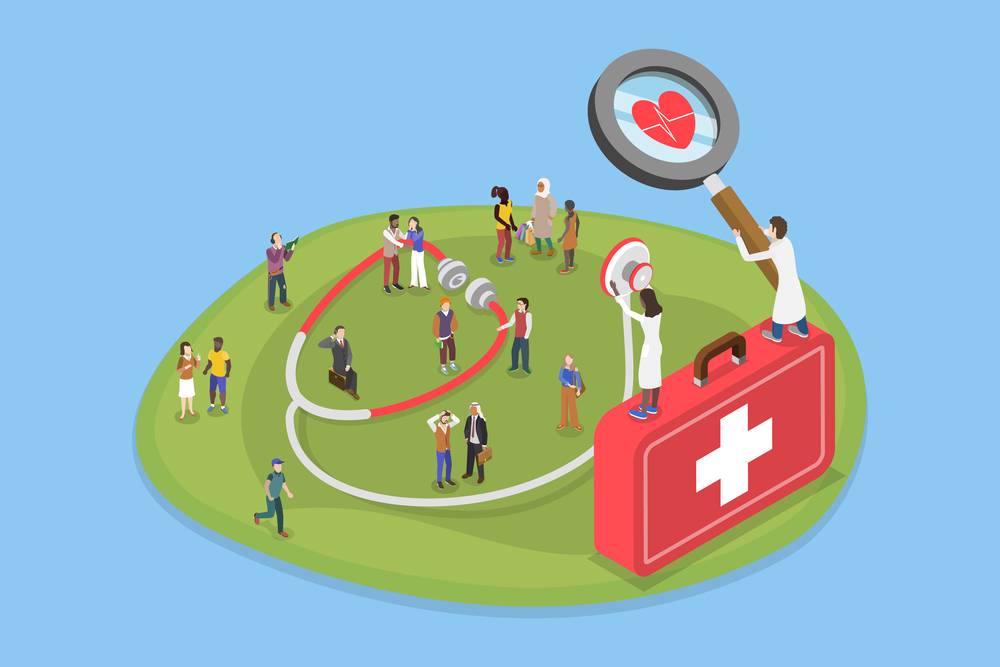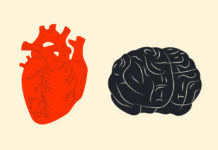New research reveals that trauma, poverty, discrimination, and housing instability have a more profound impact on mental health than clinical models acknowledge. Yet, mental health providers remain ill-equipped to respond.
A recent scoping review published in Translational Psychiatry offers a sobering analysis of how the social determinants of mental health (SDoMH) continue to be sidelined in clinical practice. Authored by a group of prominent psychiatrists and psychologists, the paper reviews the literature on how these social forces shape mental health outcomes and proposes new guidelines for integrating that knowledge into care.
Despite decades of evidence linking social and structural factors—such as poverty, trauma, and racism—to mental distress, the authors find a lack of institutional training, guidance, or infrastructure to support interventions that address these root causes.
“A healthcare system should start by identifying the SDoMH that apply widely in the community/ies it serves. Next, a community task force should determine which interventions to address the SDoMH are feasible locally or regionally. Finally, when assessing an individual patient, the clinician should determine which specific SDoMH are potentially modifiable and are of particular concern to a patient based on their and their family’s input,” the authors write.
















I am thinking it should be for all humans. We all every one of us in a sense is a survivor of something. Trouble is many don’t want to admit it or use it as in victomology.
Report comment
As true as this may be, I don’t think it is correct for the mental health system to get into social justice work.
What the mental health system must be able to do is determine when the social justice aspect of a person’s life (which I call Ethics) is more important than their actual mental experiences. Then there should be a separate system that addresses those issues.
Human psychology is a real subject. And it will not be solved by creating some sort of social justice utopia on Earth. The psychologists need to keep working on their part until they begin to get it right. And the social justice people can keep working on their part.
The purpose of Psychology should be to figure out how to achieve real mental health.
The purpose of the Social Justice Movement should be to figure out how to achieve real social justice.
Of course the two are connected. But they are not the same.
Report comment
If, as the author concludes (rightly, in my opinion), mental health providers are “slow to respond” to the economic and social factors that are responsible for a great deal of emotional distress among the impoverished, unemployed, homeless, and otherwise victimized, this can hardly be an accident.
I venture to say that the overwhelming majority of those engaged in this field are from the more privileged strata of society and therefore possess the considerable financial resources needed to pursue higher education. I really wouldn’t expect them to feel genuine empathy with the suffering of unfortunate individuals whose life experience is totally different, or to seriously challenge–at the risk of their careers and professional standing–the neoliberal system that embodies this competitive, mercenary culture.
The predictable result: exorbitant rehab centers and psychotherapy for the rich and well-connected; holding pens for members of the underclass unable to afford high-priced lawyers to bail them out of trouble; squalid, understaffed nursing homes administering potent drug cocktails and ECT to keep their infirm patients passive and compliant.
Report comment
“Slow to respond” is putting it mildly. “Largely impervious” is closer to the mark!
Report comment
Actually, I think the subject of the implicit (or sometimes explicit) attitudes of mental health providers toward their clients is well worth a special study. How much of these attitudes can be attributed to simple class prejudice or to an unconscious feeling of racial superiority (it’s well known that people of color are more likely to be diagnosed with schizophrenia, for example). Could this be the reason why “experts” tend to focus on the supposed mental pathology of victims rather than on the motivation and behavior of the rich and powerful who create and maintain unjust social and economic systems? I think the role of psychiatry as an enforcer of social conformity over the past century and a half answers this question.
Report comment
“‘Social prescribing’ has been presented as an effective strategy to mitigate the impact of the social determinants of health. These include referring individuals to art classes, physical activity, or other community alternatives to therapy and medication that help them connect with others and build communities.”
Well, I’m rather new to the concept of “social prescribing.” But after having antidepressant withdrawal induced brain zaps being misdiagnosed as “bipolar, just after 9.11.2001. And having all distress from 9/11 being blamed on a “chemical imbalance” in my brain alone. By a manic lunatic psychologist, who’d gotten all her misinformation about me from her pastor, and a child abuser’s wife, rather than listening to my legitimate societal concerns.
I will say, art is good therapy, when one is being unjustly attacked, by a crazy DSM deluded, big Pharma forcing, psychologist. Regular, moderate exercise, in nature, was also a key in my healing journey, as was lots of other volunteer community service (for example, I was a planning commissioner of my Village.)
“Another study linked psychosis to poverty, housing and employment instability, and racism. Research has found that due to the disparities associated with psychosis, it cannot be separated from structural racism and social inequality.”
Neither can the psych industries’ forced druggings with the anticholinergic drugs, since all MD’s are taught in med school that the anticholinergic drugs (like the antidepressants and antipsychotics) can create psychosis, via anticholinergic toxidrome.
But I will agree, once one escapes the evil of psychological and psychiatric anticholinergic toxidrome attempted murders, one is then faced with systemic, attempted financial destruction, and shitloads of thievery, and attempted thievery.
“Critical psychologists have cautioned about how the practice of addressing social determinants of health is being approached. This is due to many turning social factors into individual issues, when there is a blatant need to address our society’s problems instead.”
Wake up to reality, DSM deluded psych lunatics, please … your DSM “bible” was debunked in 2013.
“In a previous study, mental health providers were found to endorse right-wing authoritarianism and ignore the needs of the hypothetical person for whom they were referred for treatment.”
Well, as one who was “referred for treatment” to a lunatic psychologist, instead of a medical doctor, as I requested, by an assh-le pastor, I will say this is not the problem.
But us “hypothetical” people are real, not “fictional,” as my medical records wrongly state.
Report comment
I think that many people who foster a “trauma” informed approach of psychiatric care and services that acknowledge political power differences and structural violence against women, people of colour, people with disabilites ect., are not aware enough that the whole psychiatric field since its inception in the 18th century is at the root of a political system that upholds these “values”. To help the powerful to continue with the enforcement and continuation of these power differences has always been at the core of psychiatry.
There is therefore no hope to remove these values and practices from the field. Just as it is not possible to change the DNA of a living being.
The only reasonable thing is therefore to build alternatives to the psychiatric field outside and fully independent of it.
There was already enough evidence back in the 1990ies that the turn to trauma informed care did nothing to make psychotherapeutic support more beneficial to patients.
Bessel van der Kolk in The Body Keeps the Score and David J. Morris in The Evil Hours give an overview of the research results into trauma informed psychiatric care. It’s already proven that it doesn’t work.
Both in their research reviews come to the conclusion that evidence has it that those people who have a full recovery from serious chronified mental health challenges in the wake of violent and oppressive experiences do whatever they see fit to deal with their problems in a self-directed way and add a substantial amount of hours spent in yoga classes to the mix.
My personal experience is exactly the same.
I don’t understand why people working in the field do not take these results into account and go on and on to demand a transformation of the system when it is already clear that these new approaches can’t keep what they promise.
Or, yes, I do understand. What really works for people with chronic mental health challenges is not of interest to the people who work in that field. They have other priorities.
Report comment